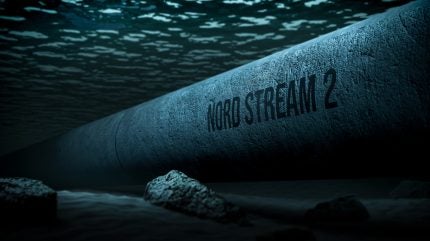
The European Court of Justice’s lower court has dismissed Nord Stream 2’s attempt to contest the EU’s unbundling rules on gas transmission pipelines.
In 2019, the EU revised its gas directive to apply its regulations to gas pipelines from non-EU countries.

Discover B2B Marketing That Performs
Combine business intelligence and editorial excellence to reach engaged professionals across 36 leading media platforms.
The court said in a statement: “Those rules provide, in particular, for the unbundling of transmission systems from those of production and supply, as well as for third-party access to transmission systems.”
The court ruled that Nord Stream 2 (NS2) should have anticipated it would not comply with EU regulations while constructing the pipeline, which was completed in 2021.
The Nord Stream 1 and NS2 pipelines were designed to transport 110bcm of natural gas annually across the Baltic Sea to Germany.
However, the pipelines never achieved this capacity, with Nord Stream 1 delivering just over 59bcm in 2021 and the NS2 pipeline never having transported any gas.

US Tariffs are shifting - will you react or anticipate?
Don’t let policy changes catch you off guard. Stay proactive with real-time data and expert analysis.
By GlobalDataIn September 2022, one of NS2’s pipes and the operating Nord Stream 1 (NS1) pipelines were damaged in an explosion.
“The court explains that Nord Stream 2 AG made and continued its investments in its gas pipeline during a period within which it had no assurance that EU law would continue not to be applied to its pipeline,” the statement added.
In a related development, Moldova and Russia recently held discussions to explore alternative gas routes for Transdniestria, which relies on Russian gas transported via Ukraine.
Moldova’s Energy Minister, Victor Parlicov, stated that the termination of Russian gas supplies to the breakaway Transdniestria region after 1 January 2025 is a “realistic” scenario due to the likely end of Ukraine’s gas transit agreement with Russia.
While Gazprom is willing to use the current route, it requires agreement between Moldova and Ukraine. Currently, all Russian gas delivered to Moldova is allocated to Transdniestria.





